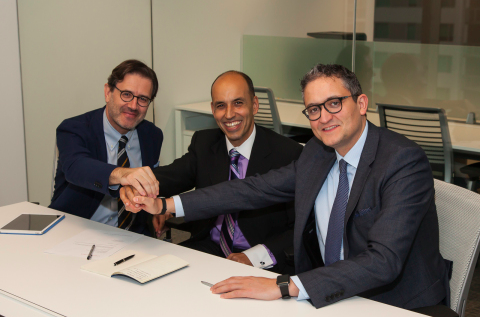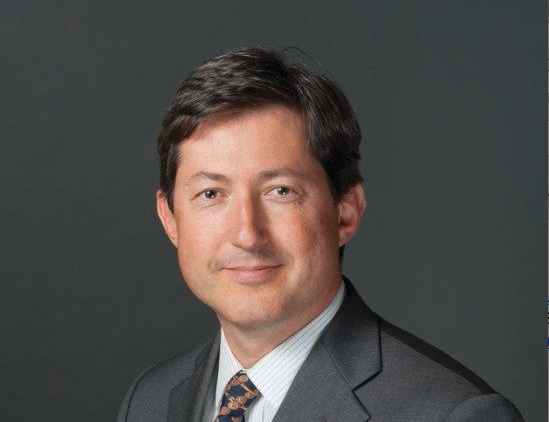Wealth-X, the global ultra-high net worth prospecting, intelligence and wealth due diligence firm, has curated a selection of thoughtful gifts that suit the global lifestyle of the ultra-wealthy, regardless of the season, from an US$ 10,000 custom luxury sneakers to a US$ 60 million Superyacht. The list includes ten exclusive gifts ideas:
1. Polar Star Superyacht
The 63.4 m (208’) Polar Star by Lürssen combines the capabilities of an explorer vessel with the sleek lines, interior volume and amenities of a modern luxury superyacht. For total comfort and a relaxed Hamptons beach-house feel, the expansive interior features a wide selection of living areas and facilities, including gym and movie theater. The abundant outdoor spaces, spanning five decks, host sun lounging and “al fresco” dining areas, a large Jacuzzi, bar, barbecue and open-air cinema. Polar Star sleeps up to 12 guests in six large staterooms, and the panoramic master suite with private study on the upper deck enjoys unobstructed views. The Polar Star’s comprehensive list of toys and tenders includes a 29’ Naiad jet tender and a 25’ Malibu Wake setter tender, so water-sport “aficionados” can enjoy extreme thrills surfing waves of up to 2m tall. The superyacht can be purchased for EUR 55,000,000 and is also available to charter from EUR 380,000 per week.
2. Tiffany & Co. out of retirement jewelry collection
The luxury jewelry house Tiffany & Co. has embarked on its first collaboration with another retailer — Dover Street Market, the cutting-edge multi-brand emporium established by Comme des Garçons’ Rei Kawakubo. The capsule “Out of Retirement” collection consists of 18 limited-edition pieces — eight jewelry designs and 10 gift items — inspired by styles from the Tiffany & Co. archives. The offerings include witty sterling silver gifts such as a fish flask riffing on the old “drink like a fish” adage (price upon request), a pillbox shaped like a miniature Chinese take-out box (US$ 545) and party hat (US$ 780) with matching party horn (US$ 1,550). Other vintage pieces are a trio of postage money clips in 18 karat gold (US$ 5,450) and a wood interlock bracelet in 18 karat gold with interlocking rose gold bangle (US$ 10,600).
The exclusive gift items and jewelry will be showcased in installation spaces in Dover Street Markets New York, Ginza and London stores, with site-specific displays inspired by Gene Moore, who designed Tiffany’s iconic windows from 1955 to 1994. To honor the partnership, the classic Tiffany Blue Box will give a nod to Dover Street Market by replacing its signature white ribbon with black on all packaging for the collection.
The limited-edition items will be available at Dover Street Market until January 2016.
3. Myswear custom luxury sneakers
E-commerce fashion retailer Farfetch has partnered with London-based footwear brand Swear to launch a customization program named Myswear. The service will combine 3D modeling technology with expert artisanal Portuguese craftsmanship; the platform allows customers to design their own sneakers, choosing among 16 unisex silhouettes and over 80 combinations of colors and materials, including ethically sourced python, ostrich and crocodile skins. The footwear designs can run from US$ 385 to US$ 10,000, with four to six weeks lead time from design submission to delivery. Each finished design will be handmade in Portugal, and buyers can opt to have their initials subtly foiled or embossed on the tongue of the sneaker.
4. Chivas 12 made for gentlemen by Globe-Trotter steamer trunk
Made on request, this modern interpretation of a timeless steamer trunk is a collaboration by Chivas Regal and Globe-Trotter. Featuring bespoke burgundy fibreboard, American white oak from oak casks and a hand engraved copper plaque made from a retired Scotch whisky still, the steamer trunk also comes with specially created compartments for shoes, a drawer to hold up to eight watches, leather covered hangers for pristine suits and a beautifully crafted mini bar with mirrored back. The retail price is GBP 12,000 (US$ 18,000).
5. The Citation Longitude private jet
The Citation Longitude is a super-midsize business jet with a range of 3,400 nautical miles, a payload of 1,500 pounds and a cruise speed of 550 mph. The spacious cabin has seating for up to 12 with ample legroom, and the jet provides the quietest interior in its class. Natural light is in plentiful supply, with 15 large windows positioned for optimal viewing. While enjoying the view, passengers can stay connected and productive utilizing the standard Internet and cabin management system. The forward wet galley, finished in fine hardwoods, has plenty of room for food preparation. Cabin service is enhanced by hot and cold water, generous cold storage, large supply cabinets and can accommodate an espresso maker and a microwave oven.
6. Richebourg Grand Cru wine
A rare vintage from Burgundy, the Richebourg Grand Cru garnered media attention as the world’s most expensive wine this summer, just after the famous French wine-making region was named a U.N. world heritage site. UNESCO recognized the uniqueness of the vineyards of the Cote de Nuits and the Cote de Beaune south of Dijon, which produce some of the finest red wines in the world made from pinot noir and chardonnay grapes. The Richebourg Grand Cru currently sells at an average US$ 14,478 per bottle across all vintages and all merchants stocking it, according to Wine-Searcher. In particular, the 1985 regularly commands up to US$ 20,000 a bottle.
The Richebourg Grand Cru was a Cote de Nuits created by visionary winemaker Henri Jayer, who died in 2006 at the age of 84. Jayer was against using chemicals in the winemaking process and only produced about 3,500 bottles per year. As a result of the low supply and high demand, this wine has been one of the priciest in the world since May 2011.
7. Zhoujie Zhang Evolution of a chair artwork
This stainless steel, mirror finish piece is a unique 2011 artwork by furniture designer Zhoujie Zhang, known for integrating automated digital design and elements of spontaneity and chance. To produce his pieces, Zhang inputs basic mathematical instructions into a computer program, which then generates the object forms. The pieces are then cut, assembled and polished by hand at Zhang’s in-house workshop. The price of “Evolution of a Chair” is US$ 20,000.
8. Four Seasons’ around the world tour
Since 2012, Four Seasons has offered extravagant world tours via private jet with TCS World Travel. However, this spring, the luxury resort company started running tours on its own fully branded private jet (a Boeing 757-200ER), with more opportunities to provide its famous levels of service at 35,000 feet in the air. For US$ 132,000 per person starting in January, up to 52 passengers can enjoy a 24-day voyage of discovery, spanning the Taj Mahal, Sydney Opera House, Bora Bora and jungles of Chiang Mai. The inclusive, exquisitely curated tour removes the ordinary hassles related to travel; Four Seasons handles all accommodation, meals, drinks, ground transportation and custom excursions.
There are at least 21 hotel-trained crew and staff on board each Four Seasons flight, including three pilots, two engineers, a travel coordinator, concierge and executive chef. During trips that involve adventurous activities — such as game watching in the Serengeti — a physician and a photographer also are available. Each guest receives an iPad Air 2 in advance of the trip for pre-loading entertainment; upon boarding, passengers each get a cashmere blanket, Bose noise-cancelling headphones and custom leather travel journal by Moleskin — all theirs to keep.
9. BAC Mono Marine Edition supercar
BAC has created the “Marine Edition” of its Mono supercar — a single-seat sports car specifically designed to be stored on a superyacht. Weighing only 580 kg, the ultra-lightweight model is powered by a new 305hp normally aspirated engine delivered through a Hewland FTR gearbox, as found on current F3 race cars, and it can reach 0-60mph in 2.8 seconds. Launched in collaboration with yachting company Camper & Nicholsons, the Marine Edition will feature anti-corrosive ultra-high specification components for performance and durability, proprietary lifting system for safe and easy hoisting, an Environmental Control Container System for on board storage in climate-controlled environment and complete customizable designs to complement the colour scheme of the yacht. It is built to order at GBP 500,000 (US$ 750,000).
10. 1201 Laurel Way, Beverly Hills
The six-bedroom, 10-bathroom, 11,000-square-foot estate sits on a promontory in the hills on nearly an acre north of Sunset Boulevard. Surrounded by a dramatic “moat,” the home features floor-to-ceiling windows with sweeping, unobstructed views of Downtown Los Angeles, Catalina and the coastline of California. 1201 Laurel Way has a 2,200-square-foot private deck with a six-person Jacuzzi hot tub, a home theater with seating for 11 people, a 1,000-bottle wine room, all-glass six-car garage and a master suite fitted with a wet bar and a fireplace set in a white glass wall. The main outdoor entertainment area comes with an infinity pool and another Jacuzzi. There is also a guesthouse on the property with built-in kitchenette and gym. The asking price is US$ 42 million.







